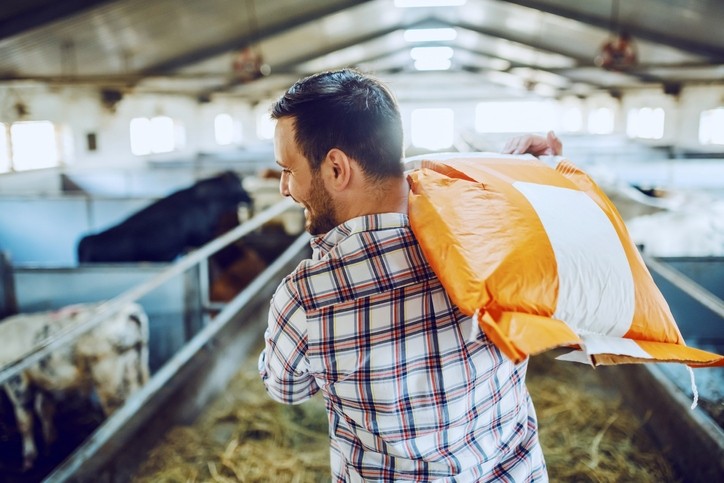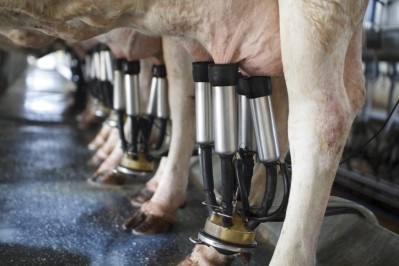Coronavirus: UK businesses get guidance on reformulation and labelling of feed

“There was an anticipation that should certain materials or additives not become available, for whatever reason, then companies might need to make relatively quick decisions as to how they might be able to substitute those. The industry needed guidance in advance of that eventuality - we are not in that situation at the moment, as feed materials and additives are, generally, available,” James McCulloch, head of feed Sector, AIC, told FeedNavigator.
So the guidelines are in place as a precautionary measure at the moment, but with incidents such as logistical challenges in China or partial closing of ports in India, reformulation and amendments to feed labelling could become a reality.
“If a feed manufacturer has ordered manganese sulphate, for example, from an Indian supplier and then suddenly finds it can’t sail for three or five weeks, then there may be a requirement to substitute with another source of manganese, resulting in a need then to over-label existing bags that have a particular source of manganese printed on them, and there could also be implications for formulation depending on the concentration of the active,” he noted.
The industry wanted to have clear guidance at this point as it was felt there may not be sufficient time to go to the FSA and/or UK National Trading Standards in the event of supply disruptions, reiterated the AIC feed lead.
“Obviously if you are producing bulk feed, you can amend your delivery documentation accordingly. If you are producing bagged feed or premixures, then putting a label on top of an existing declaration is not overly onerous. But I guess if you are selling feed in a retail environment, in terms of smaller packs and higher quantities of individual units, there may be more implications in terms of sticking labels over existing labels. But, for us, from a livestock standpoint, at the moment, our feeling is there are no great implications should we have to use the guidance that has been issued,” added McCulloch.
FSA advice on reformulations and labelling of animal feed
Where a business has to change their standard feed formulations, the FSA said alternatives may be used under the following criteria:
- The substituted ingredients are permitted for use in the UK and EU.
- The substituted ingredients are used in accordance with any legislative criteria e.g. target species, maximum permitted limits, etc.
- Any reformulation must ensure the feed is safe for the intended species or category of animal.
- Accurate information for reformulated feeds to reflect the actual composition of the product, must be provided for the individual product unit(s), to correct existing information by the use of over-stickers with the additional option to signpost to an appropriate point of information (e.g. website).
- Where the reformulation invalidates any claims, the on-pack label must be amended, so as not to mislead the customer. Other advertising materials must also be amended accordingly.
In addition, prior to production and where appropriate, the agency said the business may wish to notify the customer directly of any deviation from contracted standard formulations e.g. bulk deliveries to farm.
UK organic dairy farming developments
In addition to that FSA guidance, the UK government has granted a nationwide derogation for farmers affected to use non-organic feed, given that many organic dairy farmers in the UK have been financially impacted by the COVID-19 outbreak and the loss of organic milk sales to the food service sector.
The derogation is time limited from April 1 to May 31, 2020. The milk derived from the livestock fed non-organic feed will not be sold as organic and the milk will need to be sold as conventional milk.
McCulloch weighed in on this development:
“This particular derogation is for organic dairy farmers who are selling their milk to processors that are committed entirely or to a large degree to the foodservice supply chain, and those farmers have been told there is no demand for their milk. But obviously organic dairy farmers may be able to shift their supplies back into retail, so the Soil Association requested this derogation from DEFRA to enable organically registered dairy farmers who may then be selling milk into others areas, and not selling it as organic milk, that they could continue to produce and supply milk on a non-organic basis, and if they are doing that, they have a derogation to use non-organic feed.
“Therefore, it is a different issue to one that remains on the table, which is the supply of organic soy either from China or from India - that would require a separate derogation and it is something that we as AIC and others involved in the organic supply chain are discussing with DEFRA.”
However, there is a lack of urgency around that issue right now, said the AIC representative, due to favourable weather conditions of late, coupled with satisfactory organic soy stock levels in the UK, for now.
“A little bit of pressure has come out of the system as we have had a some really good weather in the last couple of weeks, and so turnout for ruminants, and in particular for dairy, is going ahead, and in some parts of the country, is reasonably advanced, so that reduces the requirement, to some extent, for organic soy in dairy diets."
He also was privy to information this morning [April 17] that the organic soy supply issue is not as critical as anticipated as supplies from India appear to be moving.
"So while we will discuss with DEFRA the principle of any derogation, we will not be asking for one at present," reported McCulloch.















